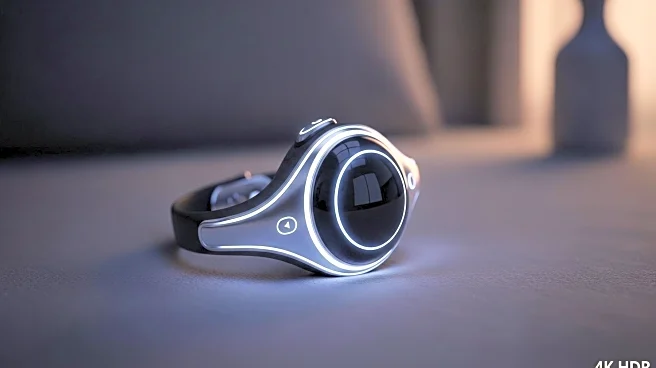What is the story about?
What's Happening?
Avi Schiffmann, a 22-year-old Harvard dropout, has launched a wearable AI device called 'Friend,' designed to act as a virtual companion. The device, resembling a small white plastic circle, uses generative AI to interact with users through text responses in a dedicated app. Despite its name, 'Friend' is not intended to replace human relationships but rather serve as a confidant akin to a journal or therapist. The device has faced backlash, particularly in New York, where subway ads promoting 'Friend' have been defaced. Schiffmann reports that approximately 3,000 devices have been activated, and 200,000 people are engaging with the AI companion online. Critics argue that 'Friend' misunderstands the essence of friendship, as it lacks the reciprocal nature of human connections.
Why It's Important?
The introduction of AI companions like 'Friend' highlights the growing interest in technology as a solution to the loneliness epidemic in the U.S. While AI devices offer constant availability, they raise concerns about privacy and the authenticity of companionship. The backlash against 'Friend' suggests skepticism about AI's ability to fulfill emotional needs traditionally met by human relationships. This development could influence public perception of AI in social contexts and impact future innovations in the tech industry. As companies explore AI's role in addressing social isolation, the debate over its effectiveness and ethical implications continues.
What's Next?
The future of AI companions like 'Friend' will likely involve addressing privacy concerns and refining the technology to better mimic human interaction. Developers may seek to enhance the emotional intelligence of AI devices to improve user experience. Public discourse around AI's role in combating loneliness may influence regulatory actions and industry standards. As the market for AI companions evolves, companies will need to balance innovation with ethical considerations to gain consumer trust.
Beyond the Headlines
The emergence of AI companions raises questions about the nature of friendship and human connection. As technology increasingly mediates social interactions, cultural norms around relationships may shift. The ethical implications of AI's role in personal lives, including data privacy and emotional manipulation, warrant further exploration. Long-term, AI companions could redefine societal expectations of companionship and influence mental health practices.















